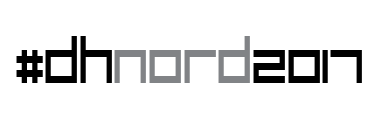Conference Programme > Workshopsnodegoat Data Modelling WorkshopPim van Bree, Geert Kessels (LAB1100)* November 29, 2017 (MESHS, Room 1) Download the workshop programme Description A well thought-out database for digital history projects allows for various modes of analysis, visualisation, and interconnectivity. Each database with historical data requires a thorough understanding of the underlying conceptual data model and logical data model. Moreover, the interface at hand has to be scrutinised as well. This workshop will deal with the following three distinct levels of any data modelling process: 1. Creating a conceptual data model What are the types of information that can be identified in the research process, and how do they relate to one another? 2. Creating a logical data model How will different kinds of information be stored and how to deal with vague / ambiguous / uncertain / contradictory / unique / irregular data? 3. Using a database application Which options does the database application offer and how can the conceptualised data model best be implemented? During the workshop, we will first focus on getting a good understanding of these three distinct levels and explore how these levels inform each other. After this, participants will be able to create/refine a data model of their own and learn how to implement this in nodegoat. Requirements No prior knowledge is required to attend this workshop. Participants are required to bring their own laptop to the workshop. No new software has to be installed, as you only need to use a (modern) web-browser. Pre-workshop preparation Learn more about nodegoat: https://nodegoat.net/documentation (in progress) Learn more about data modelling: https://nodegoat.net/blog.s/20/what-is-a-relational-database https://nodegoat.net/blog.s/21/formulating-ambiguity-in-databases https://nodegoat.net/blog.s/22/iterative-data-modelling
Programme 08:30 - 09:30 Introduction 09:30 - 10:00 Create/refine a conceptual data model based on your own research question 10:00 - 10:30 Coffee break 10:30 - 11:00 Learn how to enter data into nodegoat 11:00 - 11:30 Learn how to create a data model in nodegoat 11:30 - 12:30 Implement a first version your data model into nodegoat 12:30 - 13:30 Lunch break 13:30 - 14:00 Create/refine a logical data model based on your own research question 14:00 - 16:00 Implement your data model into nodegoat and start entering data
*English-speaking workshop
|


